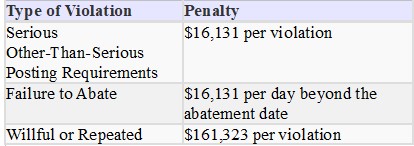
Environmental & Indoor Air Quality Management
Programs, guides, and procedures help you prepare and pass environmental audits. Environmental Policy and Procedure explanations, and environmental management programs provide explanation for workplace environmental audits and their compliance.
Environmental Management
Environmental management system refers to managing organization's environmental programs in comprehensive systematic, planning and documented manner. It includes organizational structure, planning and resources for developing and implementing and maintaining policy for environmental protection.
Environmental management is not, as the phrase could suggest, the management of the environment as such, but rather the management of human impact upon the environment. The three main issues that affect managers are those involving politics, programs, and resources. The need for environmental management can be viewed from a variety of perspectives. A more common philosophy and impetus behind environmental management is the concept of carrying capacity. Simply put, carrying capacity refers to the maximum number of organisms a particular resource can sustain. The concept of carrying capacity, whilst understood by many cultures over history, has its roots in Malthusian theory.
Environmental management involves the management of all components of the bio-physical environment, both living and non-living. This is due to the interconnected and network of relationships amongst all living species and their habitats. The environment also involves the relationships of the human environment, such as the social, cultural and economic environment with the bio-physical environment.
As with all management functions, effective management tools, standards and systems are required. An 'environmental management standard or system or protocol attempts to reduce environmental impact as measured by some objective criteria. The ISO 14001 standard is the most widely used standard for environmental risk management and is closely aligned to the European Eco Management & Audit Scheme. As a common auditing standard, the ISO 19011 standard explains how to combine this with quality management.
The ISO 14000 standards reflect different aspects of environmental management. The following list outlines the broad coverage of each:
• Environmental Management Systems: 14001-2004, 14002, 14004
• Environmental Auditing: 19011
• Environmental Labeling: 14020, 14021, 14022, 14023, 14024, 14025
• Life Cycle Assessment: 14040, 14041, 14042, 14043
Other strategies exist that rely on making simple distinctions rather than building top-down management "systems" using performance audits and full cost accounting. For instance, Ecological Intelligent Design divides products into consumables, service products or durables and un-saleable - toxic products that no one should buy, or in many cases, do not realize they are buying. By eliminating the un-saleable from the comprehensive outcome of any purchase, better environmental management is achieved without "systems".
Today's businesses must comply with many Federal, State and local environmental laws, rules, and regulations. It's vital to safeguard your company against compliance short-cuts. This approach leaves you vulnerable to violations of the law, in addition to missing important environmental liabilities
Financial Benefits of Environmental Management
Cost savings through the reduction of waste and more efficient use of natural resources (electricity, water, gas and fuels.) Avoiding fines and penalties from not meeting environmental legislation by identifying environmental risks and addressing weaknesses. Reduction in insurance costs by demonstrating better risk management.
Operational and Internal Benefits of Environmental Management
Improved overall performance and efficiency. Able to monitor and reflect (audit) your businesses and see which areas need intervention.
External Benefits of Environmental Management
Better public perception of the organization, leading to improved sales Reduction of the impact (e.g. noises, smells, dust) of your activities on the local residents, leading to more community support.
Many EPA programs encourage industries to make environmental management part of their regular operations. The Agency offers guidance and assistance in developing and maintaining Environmental Management Systems and Environmental Auditing and Accounting systems that enable managers to assess their environmental performance and determine actual costs involved in managing waste. EPA guidance also is available to assist manufacturers in pollution prevention efforts such as adopting more efficient manufacturing processes and recycling used materials
The need for environmental management can be viewed from a variety of perspectives. A more common philosophy and impetus behind environmental management is the concept of carrying capacity. Simply put, carrying capacity refers to the maximum number of organisms a particular resource can sustain. Environmental management is the conservation of the environment. Environmental management involves the management of all components of the bio-physical environment, both living and non-living. This is due to the interconnected and network of relationships amongst all living species and their habitats. The environment also involves the relationships of the human environment, such as the social, cultural and economic environment with the bio-physical environment.
As with all management functions, effective management tools, standards and systems are required. An 'environmental management standard or system or protocol attempts to reduce environmental impact as measured by some objective criteria. The ISO 14001 standard is the most widely used standard for environmental risk management and is closely aligned to the European Eco Management & Audit Scheme (EMAS). As a common auditing standard, the ISO 19011 standard explains how to combine this with quality management.
Concerns about indoor air quality (IAQ) increased when energy conservation measures instituted in office buildings during the 1970s, minimized the introduction of outside air and contributed to the buildup of indoor air contaminants. IAQ generally refers to the quality of the air in an office environment. Other terms related to IAQ include indoor environmental quality (IEQ) and "sick building syndrome" (SBS). Complaints about Indoor Air Quality range from simple complaints, such as the air smelling odd, to more complex, where the air quality causes illness and lost work time. It may not be easy to identify a single reason for Indoor air quality complaints because of the number and variety of possible sources, causes, and varying individual sensitivities.
Indoor Air Quality Management
Indoor air pollution poses many challenges to the health professional. This material offers an overview of those challenges, focusing on acute conditions, with patterns that point to particular agents and suggestions for appropriate remedial action.
The individual presenting with environmentally associated symptoms is apt to have been exposed to airborne substances originating not outdoors, but indoors. Studies from the United States and Europe show that persons in industrialized nations spend more than 90 percent of their time indoors. For infants, the elderly, persons with chronic diseases, and most urban residents of any age, the proportion is probably higher. In addition, the concentrations of many pollutants indoors exceed those outdoors. The locations of highest concern are those involving prolonged, continuing exposure - that is, the home, school, and workplace.
The lung is the most common site of injury by airborne pollutants. Acute effects, however, may also include non-respiratory signs and symptoms, which may depend upon toxicological characteristics of the substances and host-related factors.
Heavy industry-related occupational hazards are generally regulated and likely to be dealt with by an on-site or company physician or other health personnel. This material addresses the indoor air pollution problems that may be caused by contaminants encountered in the daily lives of persons in their homes and offices. These are the problems more likely to be encountered by the primary health care provider.
Etiology can be difficult to establish because many signs and symptoms are nonspecific, making differential diagnosis a distinct challenge. Indeed, multiple pollutants may be involved. The challenge is further compounded by the similar manifestations of many of the pollutants and by the similarity of those effects, in turn, to those that may be associated with allergies, influenza, and the common cold. Many effects may also be associated, independently or in combination with, stress, work pressures, and seasonal discomforts.
Because a few prominent aspects of indoor air pollution, notably environmental tobacco smoke and "sick building syndrome," have been brought to public attention, individuals may volunteer suggestions of a connection between respiratory or other symptoms and conditions in the home or, especially, the workplace. Such suggestions should be seriously considered and pursued, with the caution that such attention could also lead to inaccurate attribution of effects. Questions listed in the diagnostic leads sections will help determine the cause of the health problem. The probability of an etiological association increases if the individual can convincingly relate the disappearance or lessening of symptoms to being away from the home or workplace.
All materials in the members area for this topic index
Air Quality
Environmental
| Policies & Procedures |
| Universal Waste Program |
| Environmental Management Policy (Template) |
| Environmental Management Program |
| Waste Water Manual |
| This manual provides up-to-date information on onsite wastewater treatment system (OWTS) siting, design, installation, maintenance, and replacement. It reflects significant advances that the expert community has identified to help OWTSs become more cost-effective and environmentally protective, particularly in small suburban and rural areas. This document is 1.4M Adobe Acrobat |
| Environmental Audits / Forms |
| Waste Management |
| Air Quality |
| Small Quantity Generator Checklist |
| Oil Spill & Chemical Release |
| On site Tank Audit |
| EP CRA Audit |
| General Audit |
| Hazardous Waste Audit |
| Waste Determination Audit |
| SPCC Audit |
| Waste Water Audit |
| Environmental Checklist (Monthly) |
| Release and Corrective Actions Form |
| Environmental Regulatory References |
| 1. Environmental Compliance Audits of Hazardous Waste Generators under the RCRA |
| - Appendix A: Identification and Listing of Hazardous Waste |
| - Appendix B: Commercial Chemical Products or Manufacturing Chemical Intermediates Identified as Toxic Wastes |
| - Appendix C: Toxicity Characteristics Constituents and Regulatory Levels |
| - Appendix D: Identification of Hazardous Waste Hazardous Constituents |
| - Appendix E: Commercial Chemical Products or Manufacturing Chemical Intermediates Identified as Acute Hazardous Waste |
| - Appendix F: Potentially Incompatible Hazardous Wastes |
| - Appendix G: Land Disposal Restricted Wastes and Their Effective Dates |
| 2. Environmental Compliance Audits under the Emergency Planning and Community Right-to-Know Act |
| 3. Environmental Compliance Audits under the Comprehensive Environmental Response, Compensation, and Liability Act |
| 4. Environmental Compliance Audits of Treatment, Storage and Disposal Facilities under the Resource Conservation and Recovery Act |
| Indoor Air Quality Resources |
| Written Program |
| Indoor Air Quality Contaminant Safety |
| Form |
| Air Sample Survey |
| Indoor Air Quality References |
| Introduction |
| Diagnostic Quick Reference |
| Diagnostic Checklist |
| Environmental Tobacco Smoke |
| Combustion Products |
| Carbon Monoxide |
| Nitrogen Dioxide and Sulfur Dioxide |
| Biologicals |
| Tuberculosis |
| Legionnaires' Disease |
| Volatile Organic Compounds |
| Mercury and Lead |
| Sick Building Syndrome |
| Asbestos & Radon |
| Frequently Asked Questions |
| Air Sample Survey |
| PowerPoint |
| Sick Building Syndrome |
| Mold Control |
| 40 Hour Hazwoper Course |
| 8 Hour Hazwoper Course |
| Hazardous Waste Training |
| Technical Papers |
| Guide to Mold in the Workplace |
| Mold & Moisture Control |
| Building Protection |
| NBC Recommendations - Building Ventilation |

GET INSTANT ACCESS
to THE MEMBERS LIBRARY
Safety materials created by safety professionals.
Access to the Safety Manager software.
Wide variety of safety videos and courses.
**Brand New** Safety Training Management System
Pre-Made Safety Materials Ready For Use
Created by experienced safety professionals & risk consultants. Saving you time, money, and risk of injuries.
95% of the work already done.
Below are the maximum penalty amounts, with the annual adjustment for inflation, that may be assessed after Jan. 15, 2024. (See OSHA Memo, Jan. 8, 2024).

**New OSHA HEAT 90 DAY**
>>Download Free HERE<<
**New 2024 OSHA 300 Form**
>>Download Free HERE<<
**Brand New**
Free with full membership subscription
Training LMS System
Ask The Safety Consultant
Safety Equipment Deal Finder

“SafetyInfo.com is the first go-to website for safety professionals and companies to use in establishing a solid safety program"
-Mike McKenzie, Certified Safety & Health Manager (CSHM), McSafety Solutions™
Note: You must have a full subscription to the Safety Library in order to use this material. Any use outside of your organization, for resell, or without an active membership is strictly prohibited and may result in prosecution under copyright infringement laws. Please contact us first, if you would be interested in reselling or using our materials for reproduction.
Inside the Members Library
Topic Index
Accident Prevention
Air Quality
Asbestos
Bloodborne Pathogens
Boilers
Chemical Safety
Compressed Gas
Confined Space
Construction
Construction Worksite
Cranes & Slings
Driver / Fleet Safety
Drug Free Workplace
Electrical
Emergency Management
Engineering Safety
Environmental
Equipment
Ergonomics
Fall Protection
Fire Safety & Prevention
First Aid
Flammable Materials
Forklifts
Hazard Communication
Hazardous Materials
Hearing Protection
Heat Stress
Hot Work
Housekeeping
Job Safety Analysis
Laboratory
Ladders
Lead
Lockout-Tagout
Machinery & Equipment
Material Handling
MSDS (SDS)
Medical & First Aid
Occupational Health
Office Safety
Off the Job Safety
Personal Protection
Process Safety
Record Keeping
Respiratory Protection
Silica Safety
Rules & Policies
Signs & Labels
Slips, Trips & Fall
Training
Terrorism Programs
Tool Safety
Vehicle & Driver
Violence Programs
Welding & Hot Work
Training Videos
Library Index
Training Materials
Videos/Courses
Talks
Articles
PowerPoint
Handouts
Training Overheads
Quizzes
Supervisor Briefs
Management Briefs
Safety Sessions
2 Minute OSHA Safety Talks
Pamphlets
First Aid Training
Supervisor Training
Hazardous Materials
Bomb Threat
Crossword Puzzles
Biological Agents
Forms & Documents
Forms
Checklists
Audit Guides
Inspections Guides
Signs & Labels
Environmental Audit Guides
Recordkeeping - OSHA 300
Sign & Label Maker
Safety Management Resources
Safety Manuals/Written Programs
Ergonomic Programs
Emergency Plans
Process Safety Management
Construction Safety
Occupational Health
Environmental
Topic Sheets
DOT Fleet-Driver
Hazardous Materials
Chemical Safety
Drug Free Workplace
Terrorism Programs
Development Guides
Safety Manager Software
Safety References & Graphics
Technical Safety Information
Posters
Topic & Fact Sheets
Development Information
Job Specific Safety Rules
Terrorism
Calculators
Safety Comic Strips
New Safety Training System
Schedule and train your employees with our materials. Add unlimited amount of employees. Record all progress and issue certificates. For group and individual training sessions.

